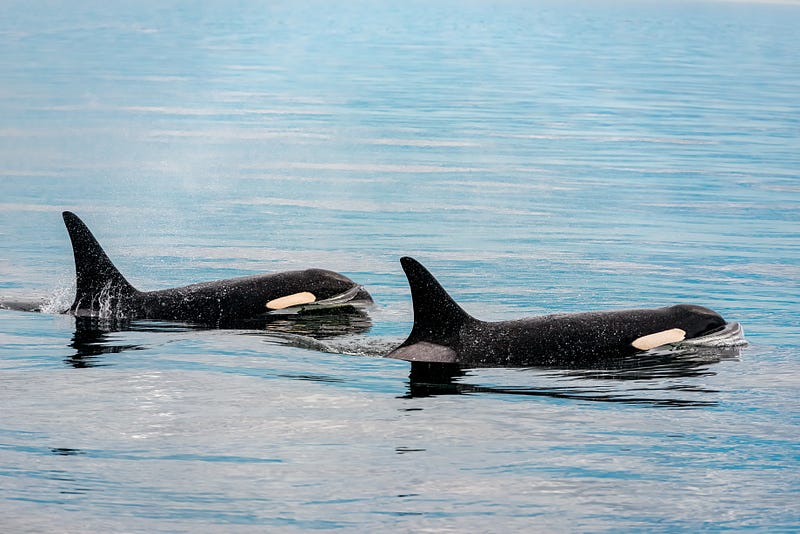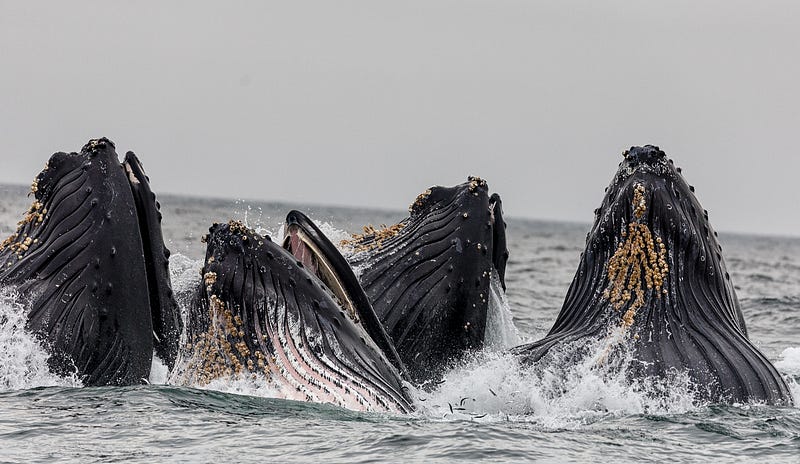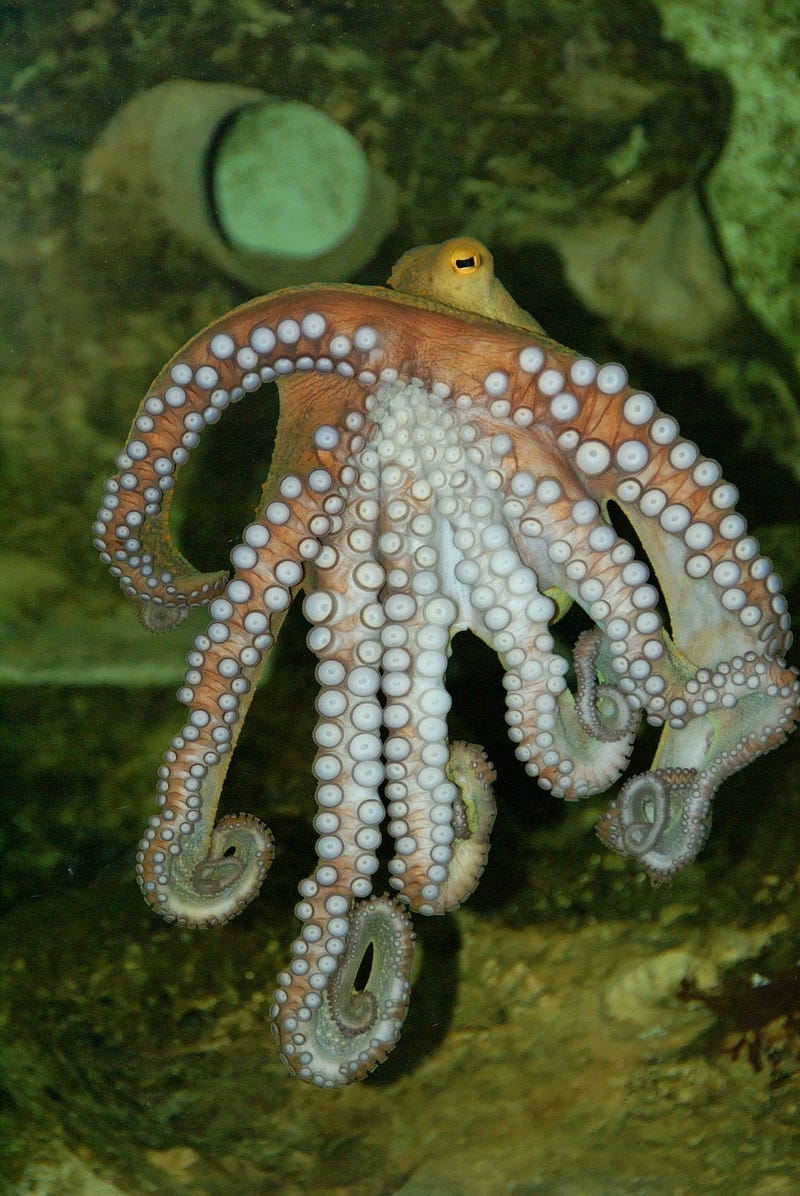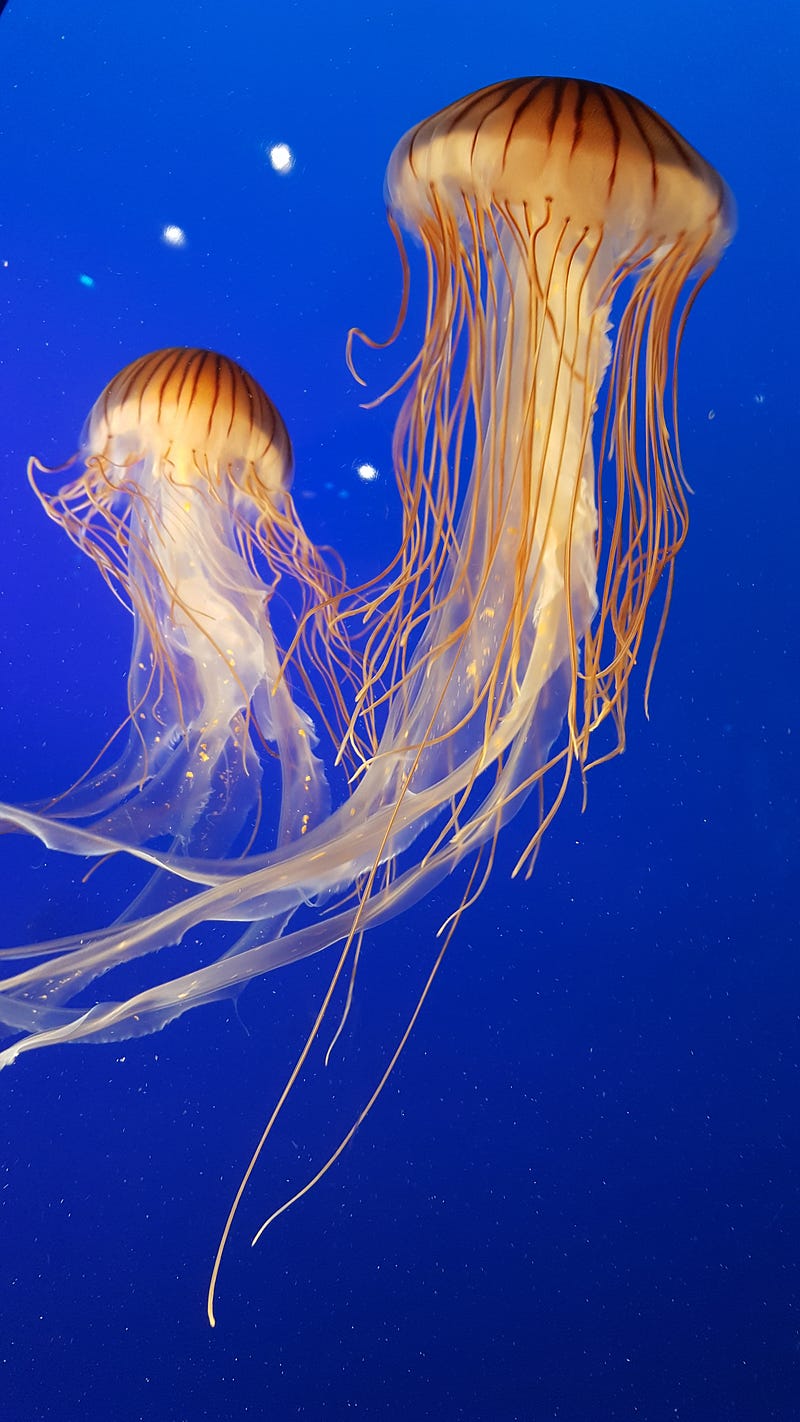Whale Wonders: How Do These Giants Get Their Fresh Water?
Written on
Understanding Whales and Their Water Needs
Whales, being mammals, require water just like any other mammal. One intriguing question arises: how do these massive creatures manage to hydrate themselves? Do they consume thousands of liters of saltwater when feeding?

The Influence of "The Swarm" on Marine Perspectives
Recently, I delved into "The Swarm," a captivating science fiction novel by Frank Schatzing. This book proposes that an intelligent life form, known as the YRR, has existed in our oceans since the dawn of time.
Due to humanity's relentless pollution and exploitation of marine ecosystems, the YRR retaliates by driving humans away from the sea, confining them to land. The narrative vividly portrays orcas consuming individuals who are cast overboard from ships, and highlights the destructive consequences of human actions, such as tsunamis triggered by the destabilization of the continental shelf between Europe and the UK.
A group of scientists gathers to uncover the motives behind these attacks and to find a solution, offering readers a rich blend of thrilling storytelling and scientific insights.

The Quest for Freshwater in Whales
A curious thought struck me while reading: how do whales obtain fresh water? As mammals, they certainly need it. A quick search led me to a fascinating world of information about whales and their hydration methods.
Baleen Whales: Nature's Filterers
Baleen whales, which filter-feed by keeping their mouths open like vast nets, consume large amounts of krill and plankton while expelling excess water. Krill, tiny crustaceans that can measure between 3/8 inch to 6 centimeters, are particularly abundant in polar waters and are crucial for whales' diets.
These whales—such as blue, humpback, and minke whales—play an important role in their ecosystems, as krill not only serves as food but also provides significant hydration.

Toothed Whales: The Ocean's Predators
Toothed whales, which include species like sperm whales and orcas, account for about 90% of all whale species. Their diet consists mainly of fish, cephalopods, and crustaceans, all of which contain substantial water content, helping them maintain hydration without adding excess salt.

The Role of Jellyfish in Marine Hydration
Interestingly, jellyfish—composed of about 95% water—also contribute to the hydration of marine mammals. While baleen whales may consume jellyfish only when they are small, other creatures like leatherback turtles rely heavily on them, putting them at risk from plastic debris in the ocean.
A Salty Reality of Excretion
Marine mammals, including whales, possess a unique renal structure that allows them to reclaim more water through their kidneys, resulting in urine that is significantly saltier than seawater. Studies on seals and sea lions indicate their urine can contain up to two and a half times the salt concentration of seawater.
This remarkable ability to excrete excess salt is crucial for their survival in saline environments.
A whimsical exploration of whale life and hydration, featuring engaging lyrics and visuals.
An enlightening look at the science behind marine mammals and their unique adaptations, including the surprising role of whale urine.
In conclusion, the relationship between whales and their hydration is both fascinating and complex. From their dietary habits to their remarkable kidney functions, these majestic creatures have evolved to thrive in their oceanic homes.